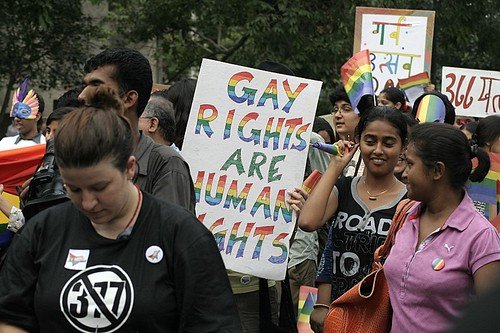
Our Blog
Categories
- Africa
- African Union
- Central Africa
- Citizenship laws
- Climate Change
- Competion Law
- Constitutional Court
- Constitutional Law
- Constitutional law
- Disability Rights
- Disability rights
- East Africa
- Environmental Law
- Gender Equality
- Governance
- Human Rights
- ICJ Advisory Opinion
- Immigration Laws
- International Law
- Kenya
- Labour Law
- Mining Law
- Nigeria
- North Africa
- Political Rights
- Public International Law
- Public Law
- Right to Vote
- SADC Region
- South Africa
- Southern Africa
- Uganda
- West Africa
- Year end anthology
- Zambia
The defence and security policy in the Congolese Constitution of 18 February 2006: what about the incumbent?
The unchanging centrality of the state rests on defense and security. These matters should escape the weaknesses of constitutional elasticity. One of the essential functions of the Constitution is to produce stability and durability in the legal framework within which political actors operate.
La politique de défense et de sécurité dans la Constitution congolaise du 18 février 2006 : quid du titulaire ?
La centralité immuable de l’État repose sur la défense et la sécurité. Ces questions devraient échapper aux faiblesses de la plasticité constitutionnelle. L’une des fonctions essentielles de la Constitution est de produire la stabilité et la durabilité du cadre juridique dans lequel les acteurs politiques évoluent.
The (Original) TRIPS Waiver: The Key to Fulfilling the Right to Health in the Global South
COVID-19 may be one of the most devastating pandemics of our generation but it is unlikely to be the last. The TRIPS Waiver remains a crucial step to ending the pandemic and its disproportionate effects on African countries and the global South.
Mandatory Vaccination against Covid-19: Implications for the South African Workplace
Covid-19’s potentially devastating impact motivated unrivalled global efforts to develop vaccines, which the World Health Organization (WHO) identified as the most effective protection against the disease. Although largely viewed positively, there has been notable mistrust and hesitancy due to concerns about health-related risks associated with Covid-19 vaccines. This has raised questions in the employment context as some employers have quickly moved towards making vaccines mandatory.
Acts of State and Judicial Independence in Cameroon
The recent appointment of Raymond Zondo as the new Chief Justice of South Africa’s Constitutional Court generated much debate centred on his qualifications, experience and suitability. Against this background, it is opportune to review the selection procedure of superior court judges, particularly in the African context.
Lasting Solutions to Corruption Lie in Effective and Accountable Institutions
When it comes to assessing the legacy of the Zondo Commission in South Africa, what might success look like?
The Poisoned Chalice of a Judge-Led Inquiry into State Capture
Commissions of inquiry have featured strongly in democratic South Africa, and many have been tasked with a truth-seeking mandate in relation to issues with profound political significance.
Accountability Measures for Atrocities Committed in the Ongoing Ukraine-Russia Armed Conflict
Russia’s ‘special military operation’ in Ukraine has been recognised as an international armed conflict, drawing near-universal condemnation as an infringement of international law. States are, therefore, making a tremendous combined effort to prevent further escalation of the humanitarian crisis.
The Urgency of Procurement Reform after State Capture in South Africa
Even a cursory reading of the published parts of the report of the Zondo Commission leaves no doubt that public procurement was at the heart of state capture in South Africa.
The Failed Attempt to Expand the Criminalisation of Consensual Same-sex Relations in Uganda
An analysis of the Ugandan Parliament’s latest attempt to further criminalise consensual same-sex relations reveals the shortfalls of the Sexual Offences Bill, 2019.
Created in the Image of God, Criminalised by the Laws of Ghana
Amidst heated debates over the criminalisation of homosexual relationships, Ghana’s parliament is considering passing a Bill entitled the Promotion of Proper Human Sexual Rights and Ghanaian Family Values of 2021 (“Anti-LGBTQ+ Bill”). The Bill, if passed into law, will usher Ghana into another wave of criminalising homosexual conduct.
Fundamental Rights and the Legal Obligations of Business
In “Fundamental Rights and the Legal Obligations of Business”, David Bilchitz considers how to improve the global framework surrounding corporate obligations to ensure greater guidance on the content of these obligations as well as better decision-making both within corporations and national institutions. ALM caught up with Prof Bilchitz to ask him more about his new book.
Women’s Political Participation in The Gambia: Gender Quotas as Fast Track to Equality
A snapshot of women’s political participation in The Gambia shows that there is an urgent need to adopt special measures to increase women’s access to political participation.
“Re-Invigorating Ubuntu Through Water” by Ndjodi Ndeunyema
In “Re-Invigorating Ubuntu Through Water”, Ndjodi Ndeunyema argues for the existence of a court enforceable human right to water that is implied from the right to life in Article 6 of the Namibian Constitution.
- Africa
- BBI judgment
- Children's rights
- Climate Change
- Constitutional Court
- Constitutional Law
- Constitutional reform
- Democracy
- Election series
- Elections
- Environmental Justice
- Equality
- Human Rights
- International Law
- Kenya
- LGBTQ+ Rights
- Migrants
- Migration
- Namibia
- Nigeria
- Political Rights
- Public participation
- Refugee and migration series
- Refugees
- South Africa
- South African Constitution
- Women in Africa
- Women's Month
- Women's rights
- World Congress
Submissions
We welcome unsolicited submissions covering current legal developments in constitutional law, fundamental rights law, public law, international law and related fields.
















